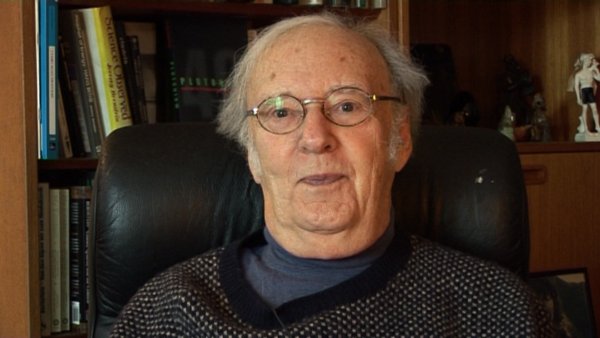NEXT STORY

How to steer clear of trouble
RELATED STORIES

NEXT STORY

How to steer clear of trouble
RELATED STORIES


|
Views | Duration | |
|---|---|---|---|
| 11. Playing the trumpet | 340 | 00:35 | |
| 12. Where should I go to college? | 467 | 02:17 | |
| 13. How to steer clear of trouble | 377 | 01:15 | |
| 14. I had no interest in becoming a scientist | 378 | 02:02 | |
| 15. Understanding the theory of relativity | 654 | 02:52 | |
| 16. Philipp Frank lectures | 533 | 03:05 | |
| 17. Am I smart enough to take calculus? | 1 | 708 | 02:52 |
| 18. The difference between Schwinger's and Weiskopf's lectures | 947 | 01:33 | |
| 19. You have to decide: physics or maths | 1 | 654 | 03:47 |
| 20. Choosing physics | 503 | 01:48 |


I mean, it was inconceivable that I would not go to college. I mean… it was just... in our family, everybody went to college. And there were PhDs and, you know, it was just… there wasn't… it wasn't even an issue. I mean, if I said I didn't want to go to college, I mean, I probably would have been locked up somewhere. So the only question was where should I go to college. And my father was a graduate of the University of Syracuse, so I went to visit the University of Syracuse and actually was signed up as a future member of the Jewish fraternity where my father used to sell apples and oranges to pay his way through college when he went there. So I was signed up to go to there. Didn't particularly want to go to Syracuse, for various reasons. I'd had enough of upstate New York. I heard about a programme at Swarthmore, which had a very good fellowship that you would get, which would pay your way for all the years, which would have been a help to my family, so I applied for it, I became a finalist, I went up there and was interviewed. One of the questions that was asked me was what sort of person would be helpful to philanthropy. And I said rich people. They thought that was very funny. I didn't think it was that funny. And then I went to a track meet and a Swarthmore person won some event and women came out of the stands and crowned him with laurel wreaths. Oh God, I don't want to go here. This...this... as Ellington would have put it, it was much too kissy for me. So I applied to Harvard, and my father's youngest brother had done graduate work at Harvard. He said, 'Well, don't go to Harvard, because there's a lot of anti-Semitism there and you won't be very comfortable. You won't enjoy it at all.' But I applied, as did my best friend in high school. And maybe other people in the high school, I don't know. He was first in the class, I was somewhere in the class. I had a lot of extracurricular activities, obviously.
Born in 1929, Jeremy Bernstein is an American physicist, educator and writer known for the clarity of his writing for the lay reader on the major issues of modern physics. After graduating from Harvard University, Bernstein worked at Harvard and at the Institute of Advanced Studies at Princeton. In 1962 he became an Associate Professor of Physics at New York University, and later a Professor of Physics at Stevens Institute of Technology in Hoboken, a position he continues to hold. He was also on the staff of The New Yorker magazine.
Title: Where should I go to college?
Listeners: Christopher Sykes
Christopher Sykes is an independent documentary producer who has made a number of films about science and scientists for BBC TV, Channel Four, and PBS.
Tags: University Syracuse, New York, Swarthmore College, Harvard University
Duration: 2 minutes, 17 seconds
Date story recorded: 15th June 2011
Date story went live: 17 August 2011